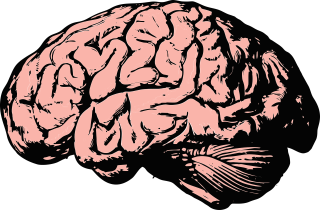Neurodiversity
Brains Are Like Fingerprints
Neurodiverse, neurodivergent, and where OCD falls.
Posted March 22, 2023 Reviewed by Gary Drevitch
Key points
- Simply put, neurodiversity means that all brains are different, like fingerprints.
- Such terms are part of a movement to view neurodiversity as a spectrum of functioning instead of a disorder to cure.
- Neither person-first ("person with dyslexia") nor labeling language ("dyslexic") are universally correct or welcome.

This past weekend, an article I ran into referenced obsessive-compulsive disorder (OCD) in the category of neurodiversity. That surprised me.
I’m a mental health clinician. As I’ve historically understood it, the diagnoses of autistic spectrum disorder (ASD), attention deficit hyper-activity disorder (ADHD), and certain sensory and learning disorders constitute the neurodiverse category. I thought that the words “neurodiverse” and “neurodiversity” meant the brain’s functioning or information processing was “different” than what’s considered to be “typical.” How did I miss OCD when it's a diagnosis I know a lot about?
Down the rabbit hole of information-seeking I went. And as I was synthesizing what I was reading (and correcting my own misunderstandings), I thought, "Hey, others may also want clarity, too." In this post, I'll address some terms that can feel confusing and even intimidating.
Neurodiversity. In 1998, a sociologist named Judy Singer coined the term “neurodiversity” to emphasize that everyone's brain develops uniquely. The words diverse and diversity imply an array. Nothing in that array is necessarily classified as typical or atypical since there are many differences. It's not dissimilar to fingerprints: We all have them, they grow with the rest of us, and each person’s is different and original. Do you ever think of your friends' or colleagues' fingerprints as normative or not normative? Granted, we don’t process information and make decisions with our fingertips, but you get the idea.
Neurodivergent/Neurodivergence. Neurodiversity activist Kassaine Asasumansu introduced the terms "neurodivergent" and "neurodivergence,” both of which refer to individuals whose brains process and communicate information in ways that are not so-called typical. (I struggle with words like “typical” and “normal” because what’s “typical” or “normal” anyway? I think we’re all unique and quirky, to be honest.)
Those who identify as neurodivergent may need accommodations for their brains to function at their potential. For example, someone whose brain gets easily distracted (e.g., a person with a diagnosis of ADHD) may need accommodations during tests to reduce the chance of being interrupted. Another neurodivergent person may learn to "mask" their differences as a way to blend in with "the norm." For example, someone with ASD may appear to socially fit in. However, in reality, their brain has helped them figure out how to masterfully mimic the “norm.” Still, it’s not natural for them and can require a lot of additional focus and energy. Think about how you’d feel having to act or perform when mixing socially and at work: It would be exhausting.
How We Hear the Terms Used
Here’s the understanding I needed to grasp: Any group of brains is neurodiverse, and neurodiversity refers to a group—just like one person cannot alone constitute “diversity” or “diverse.” Within the array of neurodiverse brains, not all would be considered neurodivergent. As I continued exploring, I was relieved to see I was not alone in my confusion about the terminology.
According to Harvard Health, though neurodiversity generally “refers to the brain diversity of all people,” it is often societally used in the “context of autism spectrum disorder (ASD), as well as other neurological or developmental conditions such as ADHD or learning disabilities.” When Internet searching, I noticed that different academic and medical sources also name the following in the classification of “neurodiversity”:
- Intellectual and developmental disorders, such as Prader-Willi Syndrome, Down syndrome, Williams Syndrome, developmental coordination disorder, sensory processing disorder, and more.
- Mental health conditions such as bipolar disorder, OCD, social anxiety, and more.
- Learning disabilities such as dyslexia, dysgraphia, dyscalculia, and more.
Well, of course, those are in the category of neurodiversity since neurodiversity includes all our brains. I wonder if those articles might have meant, or should have cited, “neurodivergent” instead?
3 More Points on Language
- Neurodiversity/neurodiverse and neurodivergent/neurodivergence are not official medical terms or classifications. They're part of a movement to view neurodiversity as a spectrum of functioning instead of a disorder to cure.
- There's the question of first-person language (i.e., a person with dyslexia) versus labeling language (i.e., a dyslexic person). Which should we use, and which is correct regarding neurodiversity? It depends. I can see how either could insult or pathologize. So, your and my best and most respectful answer is this: Ask the person about their language preferences.
- Contrary to the good feelings I got from watching Atypical on Netflix, the label “neuroatypical” doesn’t necessarily elicit good feels. It’s seen as more pathologizing to basically be referred to as brain-not-normal than “neurodivergent,” which indicates “brain-branching-off.” Further, according to Jess Hudgens, a therapist who specializes in working with neurodivergent people, "Choosing less pathologizing language can help move our culture toward an acceptance of neurodiversity and reduce the stigma faced by neurodivergent folks seeking jobs, education, or access to other resources." And now, back to what kicked off this post...
OCD. For someone with OCD, their brain circuitry runs differently than the "norm." Further, OCD is commonly referred to as a brain disorder. It can affect multiple areas of a person’s life, from judgment to academics to social interactions, etc. So I can see why some consider OCD to fall under the neurodivergent umbrella. Still, others will not see someone with OCD as having a neurodivergent brain. I can understand this point of view, too. Medication can more or less ease OCD symptoms, so a person's brain functions more "normally."
Bottom Line
Brains: All of us have them. They give each of us different deficits and gifts. As a believer in struggles creating strengths, I especially appreciate the viewpoint that autism, for example, may be a different kind of intelligence. At this point, though, there's not a ton of reliable, peer-reviewed research readily available about neurodiversity, but more is coming, and soon, more information will help us to understand the spectrum of neurodiversity. Until then, though, maybe we can work on understanding the basics that honor humans in this emerging field of knowledge.
References
Baumer, N., & Frueh, J. (2021, November 23). What is neurodiversity? [blog]. Harvard Health.
Fletcher-Watson, S. (2022, January). Neurodiverse or neurodivergent? It’s more than just grammar. University of Edinburgh.
Davies, J., Heasman, B., Livesey, A., Walker, A., Pellicano, E., & Remington, A. (2023). Access to employment: A comparison of autistic, neurodivergent and neurotypical adults’ experiences of hiring processes in the United Kingdom. Journal of the National Autistic Society.
Mottron L. (2016). L'autisme, une autre intelligence [Is autism a different kind of intelligence? New insights from cognitive neurosciences]. Bulletin de l'Academie nationale de medecine, 200(3), 423–434.




